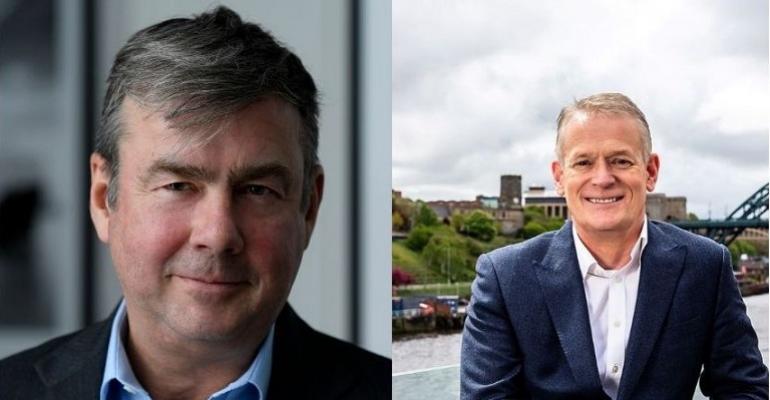Sitting down virtually with the two Chief Executive Officers, Paul Jennings of North, and Jeremy Grose of Standard, a few days after the announcement of the proposed merger the conversation did not focus, as these types of mergers often do, on “synergistic cost savings” and the ugliness that can entail, but rather on how the two organisations can complement each other and provide a more stable future platform for their members.
“This is not a proposal just about trying to reduce headcount. It's not some kind of aggressive situation where we're trying to reduce headcount and improve share price for a couple of years and appease our shareholders,” Jennings explains.
Grose agrees, as the two often do in our half hour long conversation, “I think both boards have been really clear about this being about making long term, correct decisions, and not taking short term gains, at the disadvantage of the longer term. So. the whole thing has been done to build a long term, resilient club for the future.”
The announcement of the proposed merger comes at a time when the P&I mutual model has come under pressure with increased size and frequency of claims, and with this higher volatility and double-digit premium increases. With a larger, merged club an opportunity is seen to reduce volatility and spread risk and Jennings notes that one of the truisms about insurance in general is the greater the spread of the risk the more chance there is to control volatility.
“So, putting our two clubs together, actually, in the terms of these larger claims, and the pool claims that have been so prevalent recently, two plus two doesn't actually make four in the sense of all claims, it actually makes less [than four] because of the reduced volatility that accrues out of that,” he explains.
While premium increases have also been driven by reinsurance costs at a pool level in the International Group outside the two clubs’ control Jennings does see a benefit to members of greater financial stability operating as a merged entity rather than two individual clubs as at present.
Similar views on P&I
The two clubs have worked closely with each other at the International Group and through this, and other working relationships, had found they had very similar views on P&I and how its services should be delivered. The two clubs as a result bring with them many common members, as well other diversified lines of business.
Grose says that one of the exciting aspects of the merger is that while the businesses are very similar in many respects there are also other lines of business where there they have very little overlap. “We've got P&I, which is obviously a central part of what we do….our raison d'etre. But, also, each of us has about 30% of our premiums coming from business lines beyond core blue water P&I.”
In the case of the Standard this is business areas such as strike and delay cover, and its offshore and renewables business, while North has Sunderland Marine and a very strong defence business.
However, in terms of overlap there are members that have parts of their fleet insured with both clubs, something often done as they do not want their entire fleet covered by the same club. Commenting on this situation Grose says: “We've obviously had a lot of conversation with shipowners, there's a real sense of support for that way of looking after members and that style of club.”
The two clubs have factored in that there will be members who will feel the need have some of their ships insured elsewhere. “We were completely conscious of that. It's an entirely appropriate, acceptable thing that we would see happening. Obviously, we want to encourage them and, and support them and give you as much of their business with us on a combined basis as possible.”
The expected branding of the merged club is North Standard, possibly with additional wording, which Jennings says captures the “strength and essence” of both clubs.
Two operational centres
The merged club plans to maintain two “operational centres” in London and Newcastle where the Standard and North’s headquarters are respectively today. In other locations such as Singapore and Greece there will be opportunities to merge offices when leases come up for renewal.
It is in future expansion where the two clubs see cost savings as a single entity. Jennings explains it will allow the club to spread costs and invest more efficiently for the future. This would include areas such as technology and new regional offices where only one license would be required rather than two.
Looking ahead Grose says: “I think we think we have the opportunity here as a very significant player within the International Group and to play a leading part in discussions with shipowners about their P&l. We would hope to be gaining market share, building growth in the core P&I business, but also we've got a fantastic opportunity with our diversified businesses.”
Copyright © 2024. All rights reserved. Seatrade, a trading name of Informa Markets (UK) Limited.
Add Seatrade Maritime News to your Google News feed.  |

